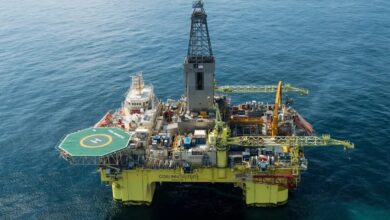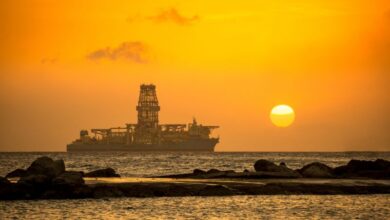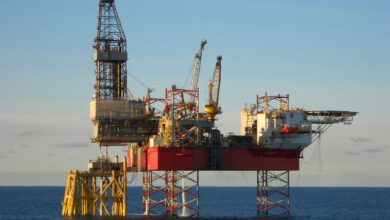Bahraini Oil & Gas Minister predicts Middle East output will soar with technology
 Advances in drilling technology will help Middle East hydrocarbon output leapfrog to necessary levels as demands soars, as expected in the coming days, predicted Dr Abdul-Hussain Bin Ali Mirza, Minister of Oil and Gas Affairs for the Kingdom of Bahrain. Dr Mirza opened the recent SPE/IADC Middle East Drilling Technology Conference, held 26-28 October in Bahrain. The conference, co-chaired by Omar Al-Husaini, Saudi Aramco, and Ghassan Mohanna, BAPCO, drew over 400 delegates from more than 20 companies. Saudi Aramco was the Titanium sponsor, BAPCO the conference program sponsor, and National Oilwell Varco (NOV GrantPrideco) and Schlumberger were coffee break sponsors.
Advances in drilling technology will help Middle East hydrocarbon output leapfrog to necessary levels as demands soars, as expected in the coming days, predicted Dr Abdul-Hussain Bin Ali Mirza, Minister of Oil and Gas Affairs for the Kingdom of Bahrain. Dr Mirza opened the recent SPE/IADC Middle East Drilling Technology Conference, held 26-28 October in Bahrain. The conference, co-chaired by Omar Al-Husaini, Saudi Aramco, and Ghassan Mohanna, BAPCO, drew over 400 delegates from more than 20 companies. Saudi Aramco was the Titanium sponsor, BAPCO the conference program sponsor, and National Oilwell Varco (NOV GrantPrideco) and Schlumberger were coffee break sponsors. “Although the Middle East holds two-thirds of the proven oil reserves, we are producing only one-third of the oil,” said Dr Mirza, who chairs the Bahraini National Oil and Gas Authority. “The gap between Middle East drilling activities and its oil reserves is due to the fact that most of our fields are prolific and producing below their potential…. When the time comes for the region to meet ever-growing oil demand, coupled with the maturing of our oilfields, drilling activities will have to be geared up….
“Although the Middle East holds two-thirds of the proven oil reserves, we are producing only one-third of the oil,” said Dr Mirza, who chairs the Bahraini National Oil and Gas Authority. “The gap between Middle East drilling activities and its oil reserves is due to the fact that most of our fields are prolific and producing below their potential…. When the time comes for the region to meet ever-growing oil demand, coupled with the maturing of our oilfields, drilling activities will have to be geared up….
Noting that the Middle East currently has only 10% of wells worldwide, he said that conventional vertical wells cannot alone make up the anticipated need for more production.
“Advances in drilling technologies will give a solution for the future,” he said.
Dr Mirza outlined some of the Kingdom of Bahrain’s initiatives to increase production and reserves. He said the government was looking long term, and the work performed despite the current recession.
“With the continued growth of Bahrain’s economy, even with moderate growth rates the gap between the supply of he major energy source, gas production, and demand is widening,” he said, adding that gas consumption is predicted to nearly double in a decade.
Some key initiatives he cited include:
• Awarding four offshore blocks to international oil companies;
• Revitalizing the mature Bahrain Field under a phased development plan with Oxy and Mubadala;
• Initiating deep gas exploration onshore;
• Pursuing gas imports via pipeline and LNG.
Bahrain envisages drilling more than 3,600 wells over the next two decades, including production, injection and enhanced oil recovery.




